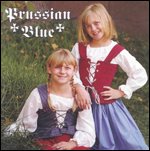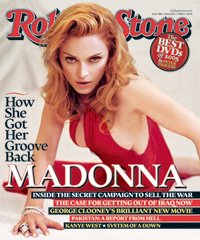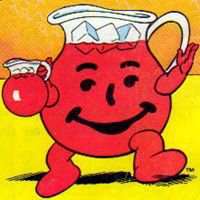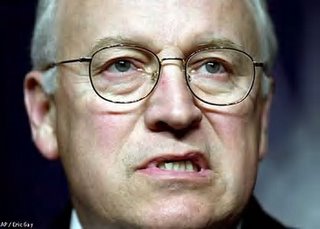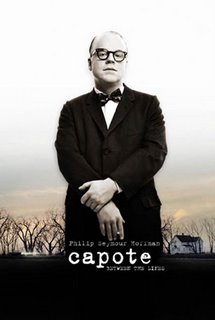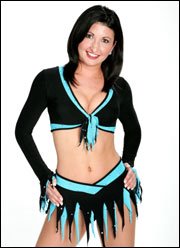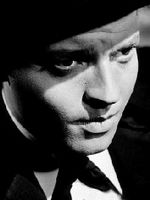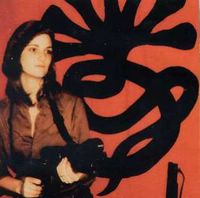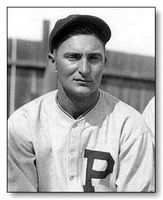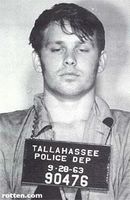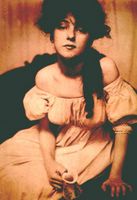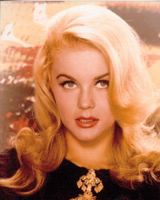Hope all you wonderful people had a good Turkey Day.
On an unrelated note, another recap of films I've recently seen or re-seen. As always, the rating scale is up to you to figure out.
The Big Sleep (1946)
Howard Hawks'
noir masterpiece doesn't reach the majesty of
Raymond Chandler, but the Philip Marlowe detective yarn (with
Humphrey Bogart the quintessential Marlowe) achieves its own sort of nobility. A nearly incomprehensible narrative of murder and doublecrosses (it is famously said that neither director nor screenwriters knew what character killed off the Sternwood chauffeur),
Big Sleep is not essential viewing for its Byzantine plot. Rather, it is for the fun of getting there amid a fog-shrouded Los Angeles filled with sexy dames (even a book store employee is a harlot-in-waiting), sleazebag blackmailers and the occasional knight in shining trenchcoat.
****
Breaking the Waves (1996)
This made me a believer in
Lars von Trier. What a strangely hypnotic film; and by all rights, it shouldn't be.
Emily Watson is extraordinary as the devout -- albeit simple-minded -- Bess McNeill, who thinks she can heal her paralyzed husband (
Stellan Skarsgard) by feeding the sex fantasies he harbors of her having sex with other men. A blueprint for von Trier's Dogma 95 school of filmmaking,
Breaking the Waves benefits from a documentary style, jagged editing and naturalistic lighting. Most of all, it benefits from Watson's affecting performance.
****
The Chorus (2004)
Goodbye, Mr. Dead Poets, only in French. Actually, that's an unnecessarily snarky way of describing an excellent little film about a self-effacing music teacher (
Gerard Judnot) at a French boarding school in 1948 who takes a bunch of Froggie sweathogs and gets them to sing in a choir. There I go being snarky again.
***
Derailed (2005)
A passable thriller of infidelity gone awry (it always does in the movies), hampered by an unsurprising surprise twist and a suspension of disbelief that would test the acrobatic skills of the Flying Wallendas.
**1/2
Dogtown and Z-Boys (2001)
Totally rad, dude. But for a (rather self-congratulating) documentary about pioneering skateboarders, there isn't enough actual footage of the Z-Boys in action.
***
Grey Gardens (1976)
This documentary by cinema-verite stalwarts
David and
Albert Maysles is a voyeuristic, sometimes shambling account at aging Edith Bouvier Beale and her daughter Edie, a wealthy, eccentric (to say the least) pair who live in a crumbling 28-room mansion in the Hamptons. Edith was an aunt of Jackie Kennedy Onassis, a connection that brought the mother and daughter to the attention of the Maysles brothers in the first place. Strange, occasionally rueful, undeniably exploitive and sometimes dull,
Grey Gardens is still fascinating, chiefly for the Maysles' ability to free their documentary subjects from inhibitions.
***
I Am Trying to Break Your Heart (2002)
Surprisingly limp documentary chronicles a truly great alt-rock band,
Wilco, during the group's recording of the album
Yankee Hotel Foxtrot. The film is squarely aimed at the already initiated; even then, it doesn't do much more than plod along. Wilco mastermind Jeff Tweedy deserves something a bit more, er, dynamic.
**1/2
In Cold Blood (1967)
Richard Brooks' adaptation of the Truman Capote true-crime masterpiece is gritty and stark, but it hasn't aged well with a third act that indulges in anti-death penalty didacticism. Even so, there remains a raw power to the story of the Clutter family murder in Holcomb, Kansas, in 1959, and the two drifters who killed them for $40. And, yes, it is kind of ironic to hear
Robert Blake, who portrays killer Perry Smith, note that crime
does pay.
***
Kiss Kiss, Bang Bang (2005)
Screenwriter
Shane Black's second chance in Hollywood is a big, sloppy wet kiss to film
noir, cheap detective fiction and Los Angeles sleaze. Sure, the self-reflexive voiceover narration (of
Robert Downey Jr. as two-bit thief Harry Lockhart) owes a lot to post-Tarantino deconstruction, but who cares if it's all witty and fun? And witty and fun it most definitely is.
***1/2
The Legend of Zorro (2005)
A dreary sequel to
The Mask of Zorro. When
Catherine Zeta-Jones in a corset isn't enough to make a movie worthwhile, you know you've got trouble.
**
The Marrying Kind (1952)
Director
George Cukor and the accomplished screenwriting team of
Ruth Gordon and
Garson Kanin combined for a surprisingly engaging hybrid of melodrama and comedy.
Judy Holliday and
Aldo Ray portray a working-class New York couple seeking a divorce; with the help of one of those uniquely movie-pretend judges, the couple dissect their marriage from meet-cute all the way to the inevitable problems.
The Marrying Kind is awfully talky, but only intermittently does all the verbosity weigh it down.
**1/2
Misery (1990)
Kathy Bates is terrific as Annie Wilkes, the self-proclaimed "Number One Fan" of best-selling romance novelist Paul Sheldon (
James Caan), who ends up prisoner in Wilkes' modest farmhouse. At its core,
Misery is a one-note thriller, but it is helped along by a proficient screenplay from old pro
William Goldman (based on the
Stephen King novel) and a nicely macabre approach by director
Rob Reiner.
***
Night and Fog (1955)
Alain Resnais' powerful, lyrical and graphic documentary on the horrors of Auschwitz should be required viewing for everyone -- especially those lovable Brownshirts of
Prussian Blue.
****
Prime (2005)
The trailers stupidly gave away one of the better surprises in this contrived -- albeit clever and entertaining -- romantic comedy.
Meryl Streep is terrific as the prototypical Jewish mother (a psychologist, in this case) whose son (
Bryan Greenberg) takes up with an older divorcee (
Uma Thurman). Streep and Thurman are in top form (and Thurman's top form
is top form), which all makes up for Greenberg never quite getting his footing. Director-writer
Ben Younger occasionally loses focus with some odd excursions (like a weekend trip the star-crossed lovers take to the Hamptons), but most of the movie is dead-on.
***
La Promesse (1996)
A gritty, hyper-realistic French-language film about a teenaged boy (
Jeremie Renier) caught between his scumbag father (
Olivier Gourmet, bearing a disturbing resemblance to an ex-brother-in-law of mine), who exploits immigrants living in his tenement building, and the widow of one such foreign tenant. Brothers
Jean-Pieree and
Luc Dardenne direct the proceedings as if they just happened to catch life, in all its tawdriness, unfolding before our eyes. This film is worth seeking out.
***1/2
Stay (2005)
Eviscerated by many critics, this
Marc Forster-directed retread of
Occurrence at Owl Creek Bridge is strangely hypnotic, visually lush and consistently interesting.
Stay is definitely a love-it-or-hate-it proposition; count me in the former camp.
***1/2
Superfly (1972)
Ballsy, edgy, gritty -- whatever you wanna call it, the Seventies had it, at least when it came to filmmaking. It's hard to imagine blaxploitation like
Gordon Parks Jr. 's
Superfly produced amid these freshly scrubbed times. The hero (
Ron O'Neal) is a cocaine dealer out for one final score before he gets out of the business, and this is one mean mofo. Not a particularly good film, by any stretch (despite
Curtis Mayfield's jammin' soundtrack), but a curious glimpse into the social milieu of a bygone era.
**
Switchblade Sisters (1975)
Shlockmeister
Jack Hill's magnum opus is the story of
Othello as set among a gang of murderous chicks. At times awful, sometimes just deadeningly slow and beset throughout by the hideously shrill voice of lead
Robbie Lee,
Switchblade Sisters isn't quite the gem that Hill sycophant Quentin Tarantino insists it is, but this slice of Seventies-era exploitation casts is appealingly brazen, from its women-in-prison tangent (big butchy warden snapping on the rubber gloves for a full-cavity search of feisty
Joanne Nail) to a legitimately well-staged climactic battle on the streets of the bad side of town.
**1/2
Walk the Line (2005)
Joaquin Phoenix is fine in this bio of
Johnny Cash, but
Reese Witherspoon is the real standout as
June Carter, the gal who stood by her (married to someone else) man. There is one great scene, in which the Man in Black auditions for Sun Records' boss
Sam Phillips; brief as it is, the scene reveals the early passion of rock 'n' roll and gets to the crux of what made Johnny Cash such a singular talent. Unfortunately, much of the rest of the film is fairly typical showbiz biopic, complete with its by-the-numbers drugs-induced fall and redemption thanks to the love of a good woman. Certainly a well-made film; just not a particularly inspired one.
**1/2


